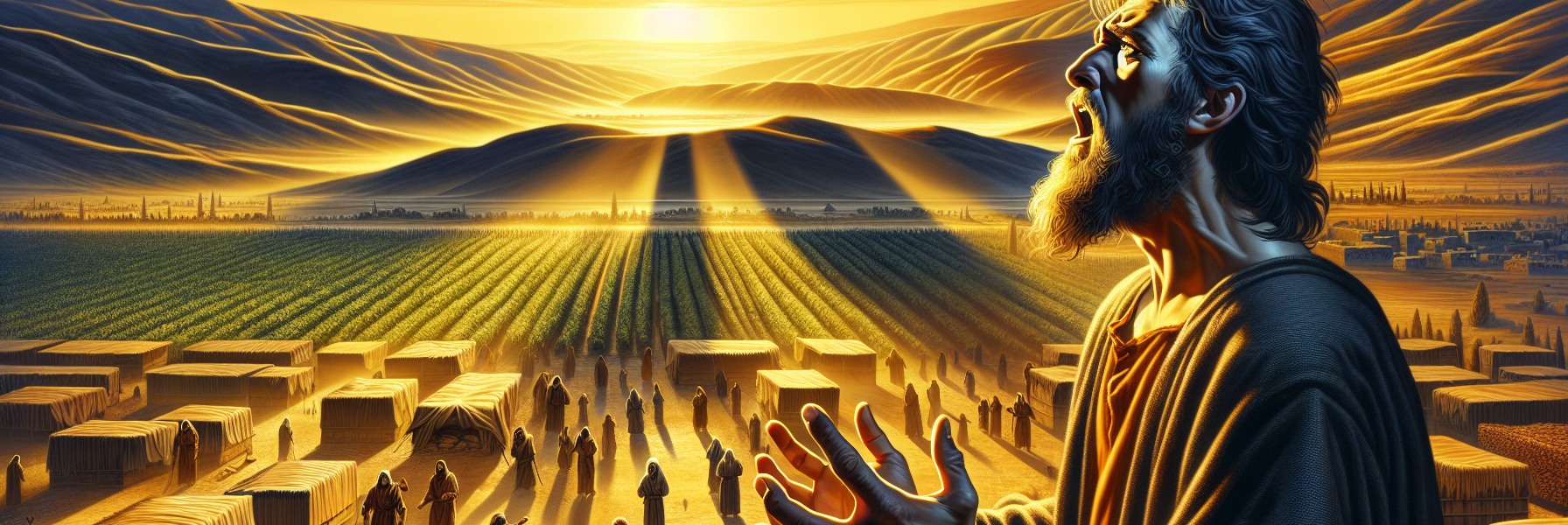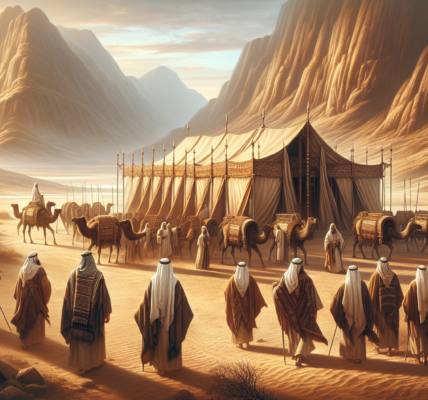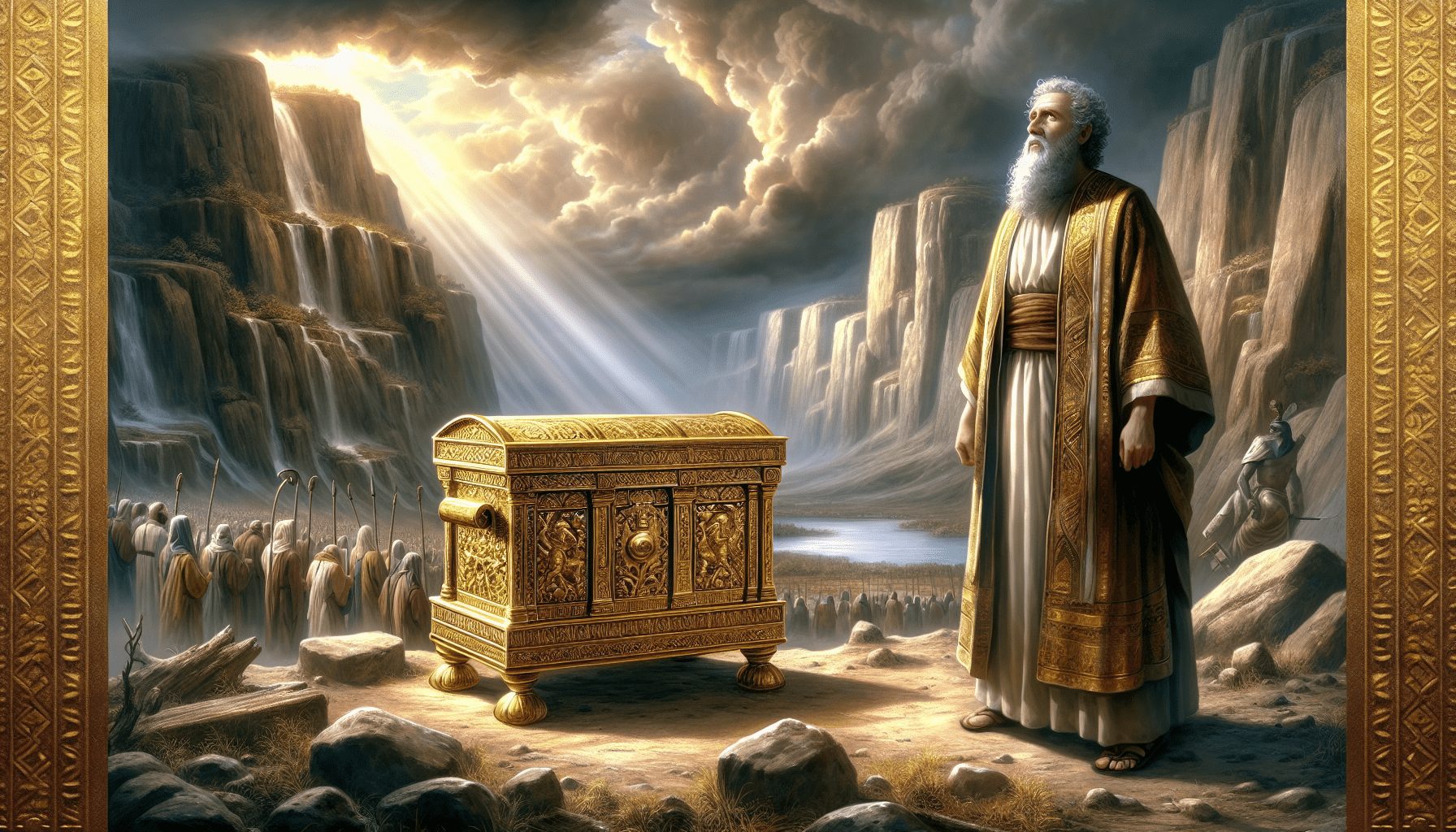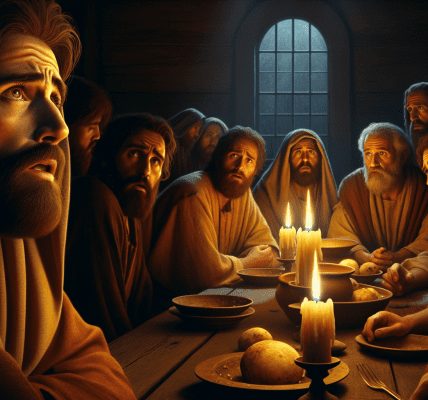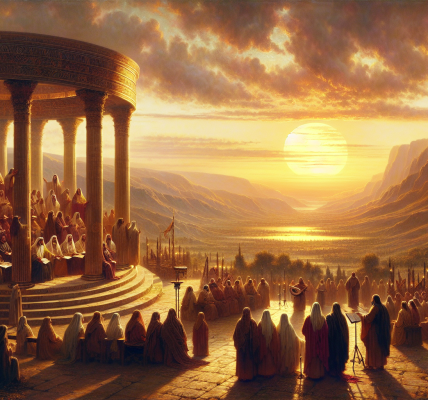**The Dawn of Repentance: A Story Based on Hosea 6**
The morning sun stretched its golden fingers over the hills of Samaria, casting long shadows across the dew-kissed fields. The land of Israel lay quiet, yet beneath the stillness, a restless heart stirred among the people. For years, they had wandered—not in body, but in spirit—chasing after foreign gods, their love for the Lord as fleeting as the morning mist that vanished with the rising sun.
In the city streets, merchants set up their stalls, their voices rising in the clamor of trade. Yet among them walked a prophet, Hosea, his face lined with sorrow and resolve. The word of the Lord burned within him, a fire that could not be quenched. He had loved a faithless wife, Gomer, just as the Lord loved faithless Israel. And now, as he stood before the elders at the city gate, his voice rang out with divine urgency.
*”Come, let us return to the Lord!”* he cried. *”For He has torn us, but He will heal us; He has struck us down, but He will bind up our wounds.”*
The people paused, some with curiosity, others with mocking smiles. A wealthy landowner, Eliab, folded his arms and scoffed. *”Why should we fear the Lord? Our harvests are plentiful, our altars to Baal bring us favor. What need have we of repentance?”*
Hosea’s eyes blazed. *”Your faithfulness is like the morning dew—gone by midday! The Lord desires steadfast love, not empty sacrifices. He seeks the knowledge of God more than burnt offerings!”*
Yet the people’s hearts were hard. They performed rituals, offering sacrifices at Bethel and Gilgal, thinking their outward acts could appease the Almighty. But their love was shallow, their repentance a fleeting shadow.
Meanwhile, in the quiet village of Anathoth, a young woman named Miriam knelt by her small plot of land, her hands trembling as she clutched the dry soil. The famine had struck her family hard, and though she had once joined in the festivals of Baal, her soul now ached for something deeper. She remembered the stories of her ancestors—of Moses and the Exodus, of the Lord’s mercy in the wilderness. Tears streaked her dusty cheeks as she whispered, *”O Lord, revive us. Let us press on to know You!”*
Days turned to weeks, and the Lord’s judgment loomed like a gathering storm. The Assyrians, fierce and relentless, marched closer, their armies a scourge upon the northern kingdom. The people of Israel trembled, their false gods silent in the face of destruction.
Hosea stood once more before them, his voice a blend of grief and hope. *”O Ephraim, what shall I do with you? Your love is like a cloud that passes, like the dew that vanishes. I desired mercy, not sacrifice—the knowledge of God rather than burnt offerings. But you have broken the covenant, transgressed against My law.”*
Yet even in His wrath, the Lord’s heart yearned for His people. *”I will not abandon you forever,”* Hosea proclaimed. *”After two days, He will revive us; on the third day, He will raise us up, that we may live before Him.”*
In the darkest hour, a remnant—like Miriam—turned their faces toward the Lord. They wept, not with empty words, but with broken and contrite hearts. And the Lord, rich in mercy, heard their cry.
For though the storm of judgment would come, sweeping away the unrepentant, a dawn of restoration awaited those who truly sought Him. The Lord’s love was not fickle like man’s; it was as sure as the sunrise, as enduring as the heavens.
And so, the prophet’s words echoed through the ages—a call to return, to seek, to know the Lord. For in the end, His desire was not for punishment, but for His people to dwell in the light of His presence forever.
